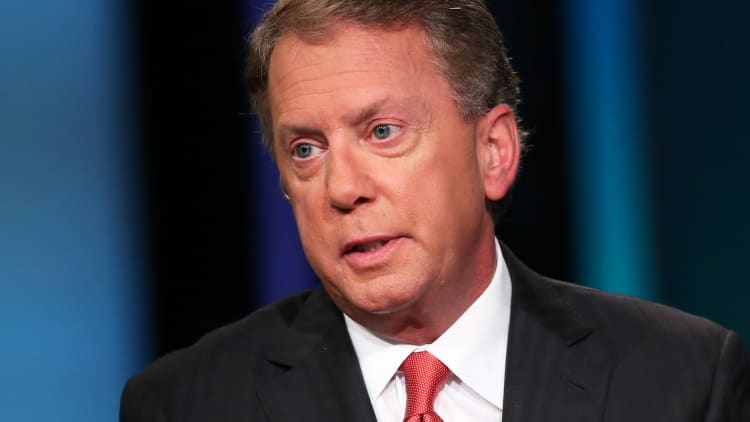
The futures market for oil contracts worked "to perfection" on Monday for the professional investors that the market is intended for, CME Group Chairman and CEO Terry Duffy said Wednesday.
Duffy said on CNBC's "Closing Bell" that it was no surprise that the May contracts for the United States crude benchmark West Texas International traded in negative territory in the final days before expiration.
"We worked with the government regulators two weeks prior to making our announcement that we were going to allow negative price trading," Duffy said. "So this was no secret that this was coming at us. We have to do things to allow the market to go to a price that is reflecting the fundamentals of the product. The futures market worked to perfection."
The WTI contracts for May settled at negative $37.63 on Monday, the first time ever that the product had traded below zero. The dramatic volatility led the United States Oil Fund, an exchange traded fund popular with retail investors, to alter the structure of the futures contracts it buys and announce a reverse stock split.
The fund did not hold any May contracts when the price fell below zero, and trading the last few days before expiration consists of only professional investors, Duffy said. Duffy pointed out that other commodities, like natural gas, have traded negative before.
The head of the commodities exchange company said that futures contracts have always been allowed to trade negative and expose investors to unlimited losses, and that the CME Group does not try to attract retail investors who may not know the rules.
"The small retail investors are somebody that we do not target. We go for professional participants in our marketplace. But at the same time, they need to make sure they understand the rules and it's up to their futures commodity merchants to make sure every participant knows those rules," Duffy said.
Oil futures have remained volatile throughout the week. The May contract bounced back above zero on Tuesday before it expired, while the June contract fell by more than 40%. On Wednesday, June futures surged by 19%.
Continental Resources executive chairman Harold Hamm wrote a letter to the Commodity Futures Trading Commission, asking for an investigation into Monday's trading. Duffy said that CME was open to an investigation but that Monday's session — which involved 154,000 contracts changing hands, the majority of which were traded above zero — was a function of supply and demand.
"If Mr. Hamm and any other commercials who are traditionally in the market believe that the price should be above zero, why would they not have stood in there and taken every single barrel of oil if it was worth something more? The true answer was is it wasn't at that point in time ... the market worked the way the market was supposed to work," Duffy said.


